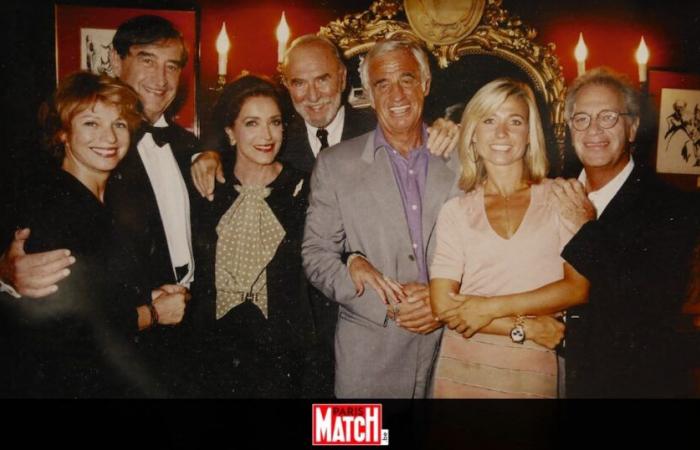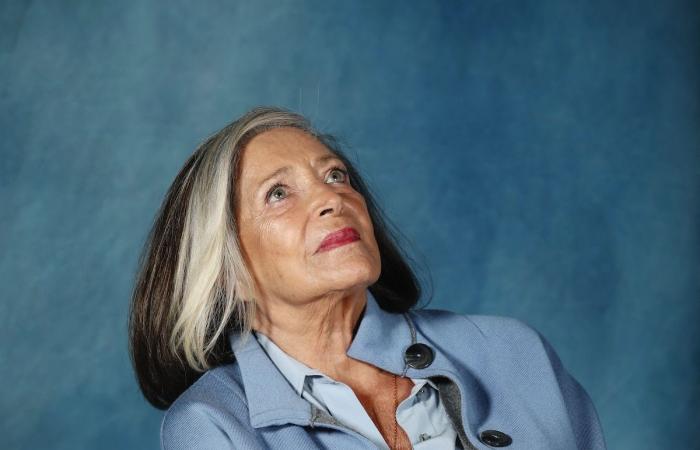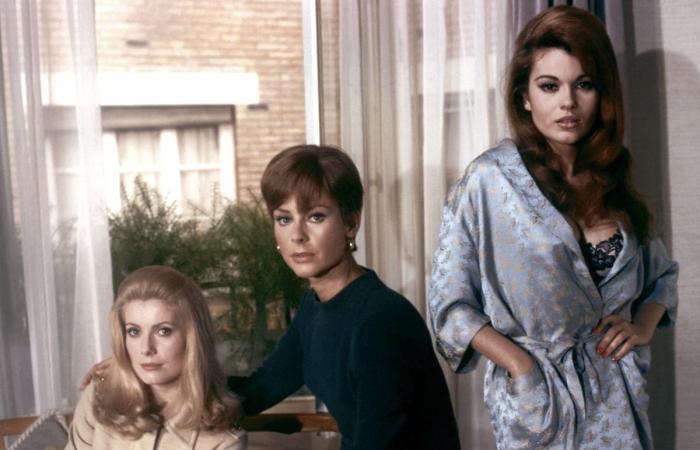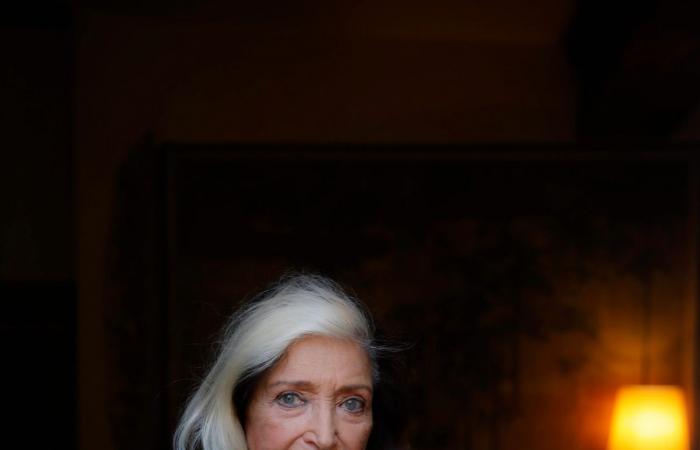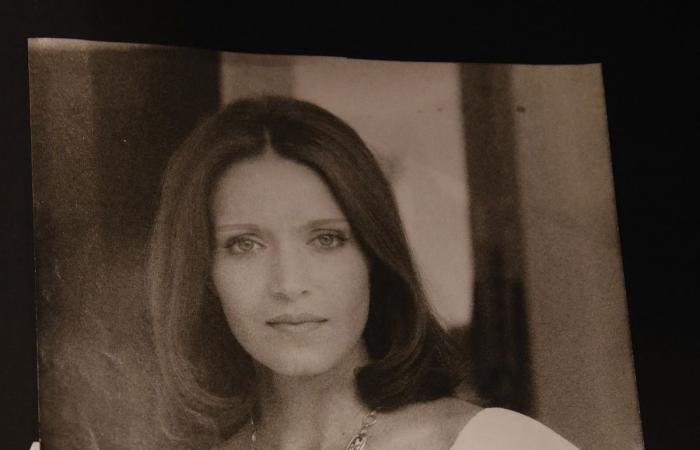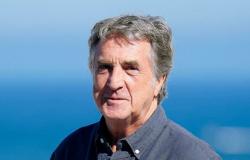Above all, you remain a great actress. One of your latest films, “Rose”, is a hymn to life. The film almost makes you want to grow old.
“‘Rose’ is a lesson in life. There are people who don’t know how to live. People who have bad lives, too. Age should not always be omnipresent. I’m 91 years old, we have to do something from all periods of her life, because age is there all the time! “Rose” is a lovely gift: a woman destroyed, but who has an absolutely fantastic vital force Who claims, after the death of her husband. , the fact of being alive and wanting take advantage of it. Everyone has an engine within them. Sometimes, I was in despair: I no longer wanted to live. And then I bounced back. vital in me. No doubt I inherited it from my parents.”
What family did you grow up in?
“She was very mixed: I was born in Algeria, to a Catalan father and a mother from a Polish family. My father was a professor. He had a very large library, a lot of records as well. I owe everything to him. . He always trusted me. I always had a great love for him, a great admiration. I really came from my father. literature, respect, benevolence. And, like him, I am left-wing.”
And what did your mother pass on to you?
“The taste for living, fantasy, happiness, joy of living, dancing, beauty, generosity. I had tailor-made parents. I wish the same for everyone.”
What child were you?
“Very dynamic, demanding. In reality, quite unbearable, dictatorial! My father called me “my little general” because I liked to command everyone, I wanted people to listen to me. They loved me, so They put up with me.”
Compared to Angèle, Lenny Kravitz and Charles Aznavour, these three young artists prove that the tune does not make the song
You dreamed of being an architect. But in Algiers, a teacher changed the course of your life…
“My first flirtation, at 17, was a student at the Algiers music conservatory. He asked me to accompany him to an acting lesson. The teacher told me that I had a good physique and offered to read a text. I knew poems by heart, so I told him a text by Baudelaire And this teacher asked my father for permission to give me comedy lessons for nothing! lessons at home. Considering that I was ready, he asked my father if he could “make the sacrifice” of sending me to take the entrance exam for the conservatory in Paris. My father accepted.
And you joined the famous gang…
“Famous, indeed: Belmondo, Marielle, Rochefort, Girardot! I learned freedom and camaraderie. They protected me, I was a bit like their little sister. They were almost stars of the conservatory, they were already in life, while I was poor, I lived in maid’s rooms. I, who had grown up in Algiers, was cold! Before, I had never worn a coat. : it was green and very warm, it went all the way to my feet. I still can’t believe how lucky I was: all these guys never disrespected me.”
Normal, right?
“Today, we only talk about #MeToo and all these horrible things that happened to women. Me, never. I was respected. I got through life without problem. They were all adorable. They opened the doors of life for me. I also had a wonderful teacher, Raymond Girard.”

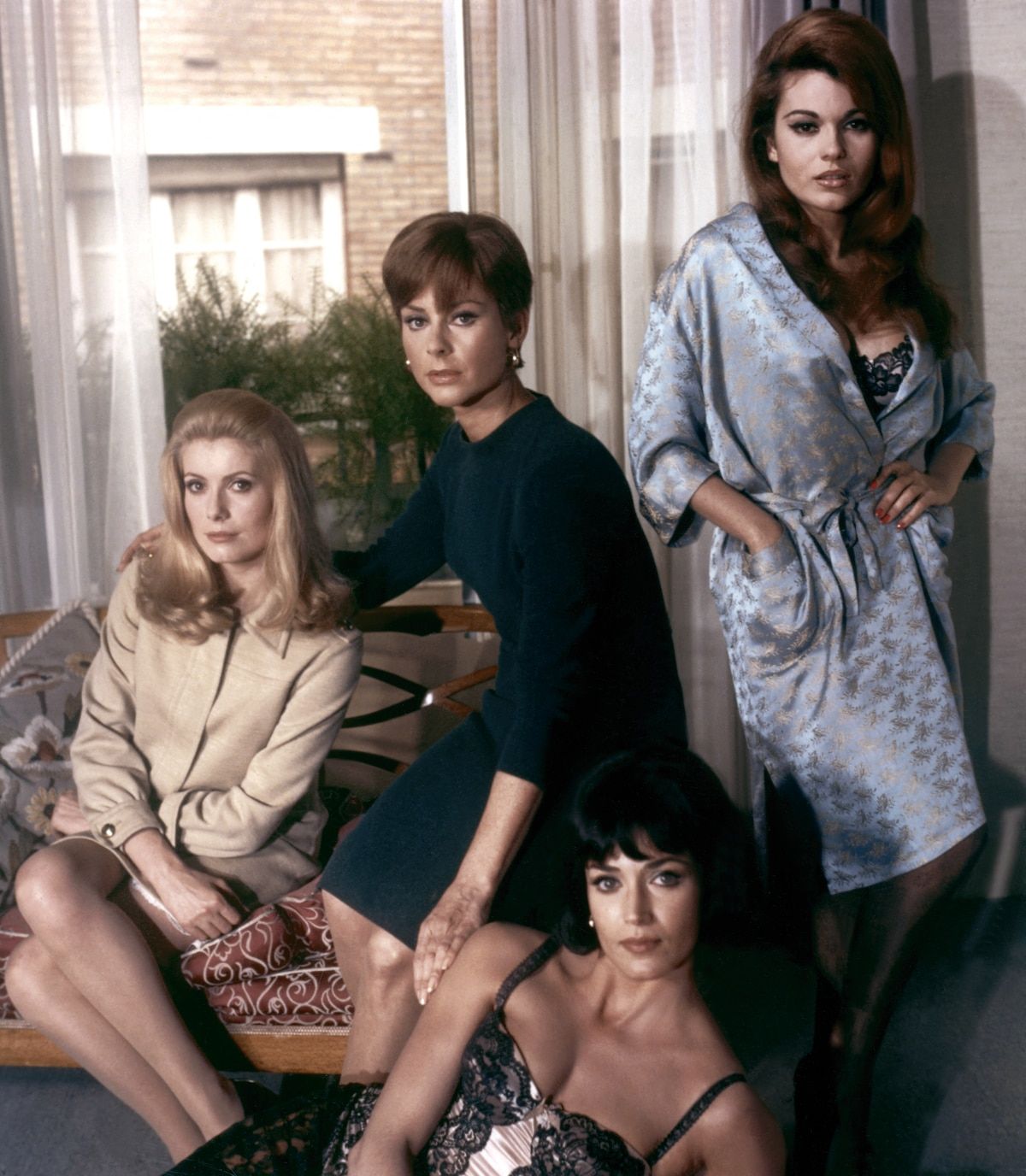
Why did you change your name? Your name was Michèle Cortès…
“One day, I had the opportunity to play a role with Jean Meyer, of the Comédie-Française, who was directing a play by Raymond Castans, one of the directors of Paris Match. He was looking for a young girl from the South who could take the Marseille accent, being at the conservatory, we were not allowed to do private theater. I had to find a pseudonym. As a child, I had a friend named Fabian, I chose that. as name. And in a few seconds, the first name came to me. Thus Françoise Fabian was born. I thought it sounded good.
You have played a lot in the theater. How did the transition to cinema take place?
“Thanks to Vadim, who was then a journalist at Paris Match. He came to see me at the theater. He had written a role for his wife, Brigitte Bardot: “This sacred kid”, the first film by Michel Boisrond. He was looking for someone one to play a lawyer. I was only 19, but I was dressed by Cardin and I wore glasses. That’s how I started in the cinema. because I had to earn my living. It allowed me to be able to say a text, to know how to speak “straight”.
It is impossible to mention all the roles you have played in your sixty-year career. Let’s stop for a moment on “My night at Maud’s”, to which your name is attached as well as that of Jean-Louis Trintignant.
“One day, François Truffaut came to pick me up to go to dinner with Jean-Claude Brialy. He explained to me: Éric Rohmer, a great director, from Cahiers du Cinéma, wrote a film for me. Truffaut insisted: “Françoise, you have to make this film!” A few days later, I saw a tall guy arrive in my dressing room who submitted a script and said to me: “Read it and call me back!” My agent was not at all OK: a black and white film about Pascal’s bet… And I was barely paid! It’s true that I refused a lot of scripts.”
A memory with Rohmer?
“We rehearsed a lot, like in the theater, but then we only did one take. At the last one, I suggested to Rohmer: ‘We’re going to leave, but let’s do one more take, please!’ He refused. This film remains a reference and is still screened and analyzed in all cinemas around the world.”

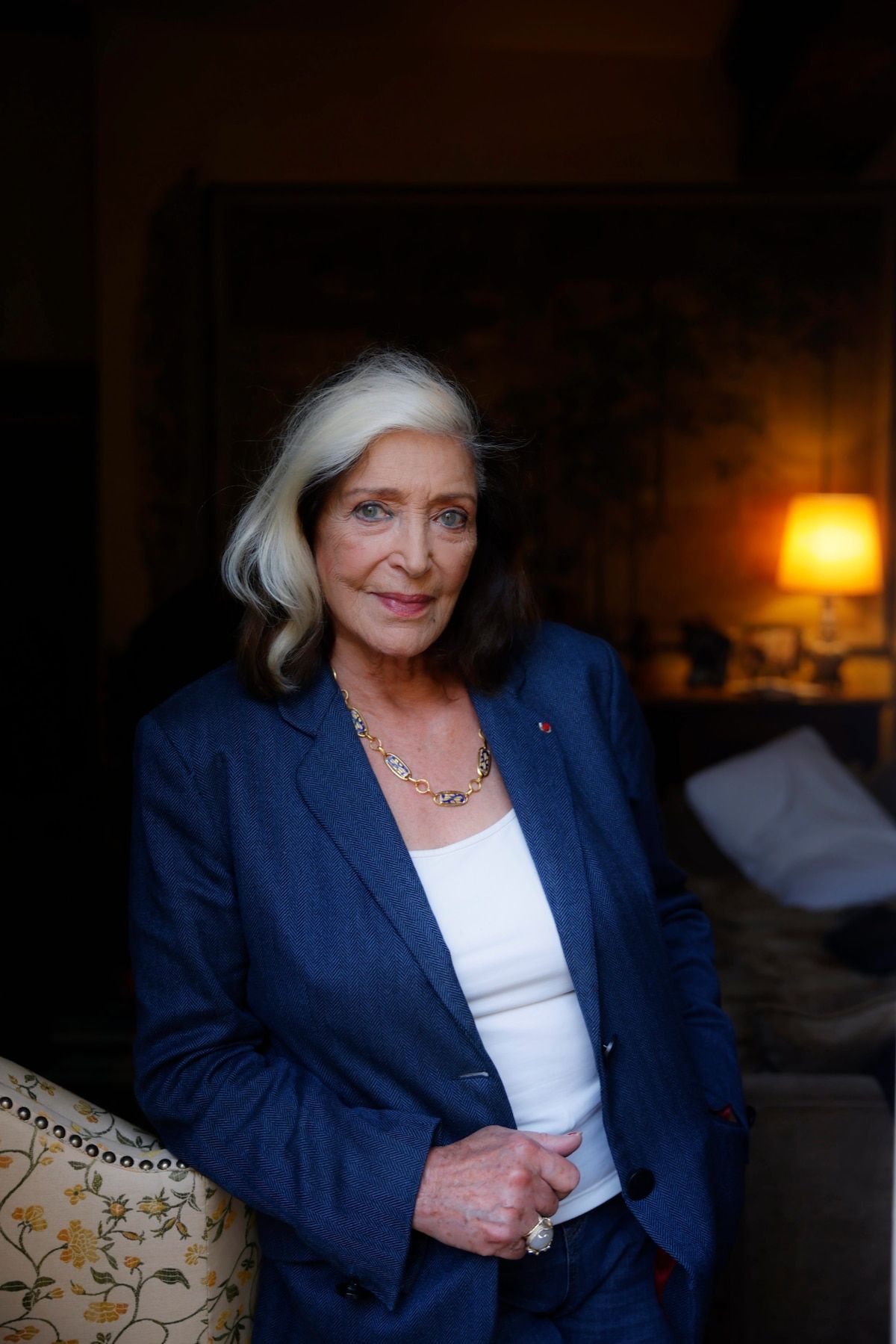
You have toured with the greatest directors. But there’s one you almost begged for…
“I never asked anyone for anything, except Luis Buñuel, whom I admired. I went to see him in his office, on the Champs-Élysées. To my cheek, I told him: ‘I want to shoot with you. “He really didn’t see what role I could play in the film he was preparing. I begged him: ‘Make me do anything!’ There was still the role of a whore. I accepted, without hesitation.”
Let’s go over a few more years, during which you worked a lot, both in theater and in cinema. Gradually, we asked you to play “moms”: Sophie Marceau, Patrick Bruel, Vincent Elbaz, Mathilda May, Michèle Laroque. Some actresses have difficulty making this transition, you don’t.
“If the role is beautiful, of a mother, of a sick person or of a whore, why not accept it? You have to invent, take care of what you are offered.”
Time doesn’t seem to have any influence on you. Montaigne wrote in “The Essays” that “old age gives us more wrinkles in the mind than in the face.” All right?
“I respect life. I have a lot of benevolence – it is one of the most essential virtues – in relation to people and to life. This would be easier if everyone was benevolent. We can make life beautiful around you, you just need to know how to love. And when you know how to love, you are loved. I have many friends that I love and I know that they love me. who love me. There are people who are not capable of loving, who don’t even know what it is to love.”
Which feeling do you prefer?
“Love! It encompasses everything: love of humanity, of the earth, of nature, of animals, of the sky, of beauty, of the arts. Love must inhabit us completely. We love to laugh, eating, drinking, going to the cinema. We almost like to suffer because it’s alive. It can even be enriching.
You have lost the three men of your life…
“My father, my first husband, Jacques Becker, and my lover, Marcel Bozzuffi. Marcel was indeed my lover longer than my husband!”
You helped your father die…
“I euthanized him, yes. And I claim it. And I campaign for euthanasia to be accepted. He was completely paralyzed. Only the brain and the arms still functioned. The rest was dead. Dead! I settled down to the hospital with him. I brought records. I knitted and I looked at him all the time. I wanted him to always have my eyes on him, so that he wouldn’t be alone. of the His eyes were desperate. He was given medication to support his medications. I took them away and he died one morning at 8 a.m. I opened the window for him to escape. That’s why I keep my white hair: it arrived the day after my father’s death. I dyed it during the filming of Lelouch’s film. “Happy New Year”. Afterwards, I decided to do it. keep.”
Your second husband, Marcel Bozzuffi, died very young.
“Yes, he was 59 years old. I never replaced him. I live completely with him, I have photos of him everywhere, I dream of him. He is my great love. My grrrrrrand love! I think that I was also for him.”
Who is Françoise Fabian?
“Someone who is very interested in others, in life, in politics, in the news, who despairs at the state of the world. And then who regains hope. You need hope: without that, we wouldn’t live anymore. But hey, what does the future offer us? I’m not very optimistic, so I look for pleasures where they are offered to me, that is to say in song, for the moment? . I like these songs: they are alive. Live-vantes!”

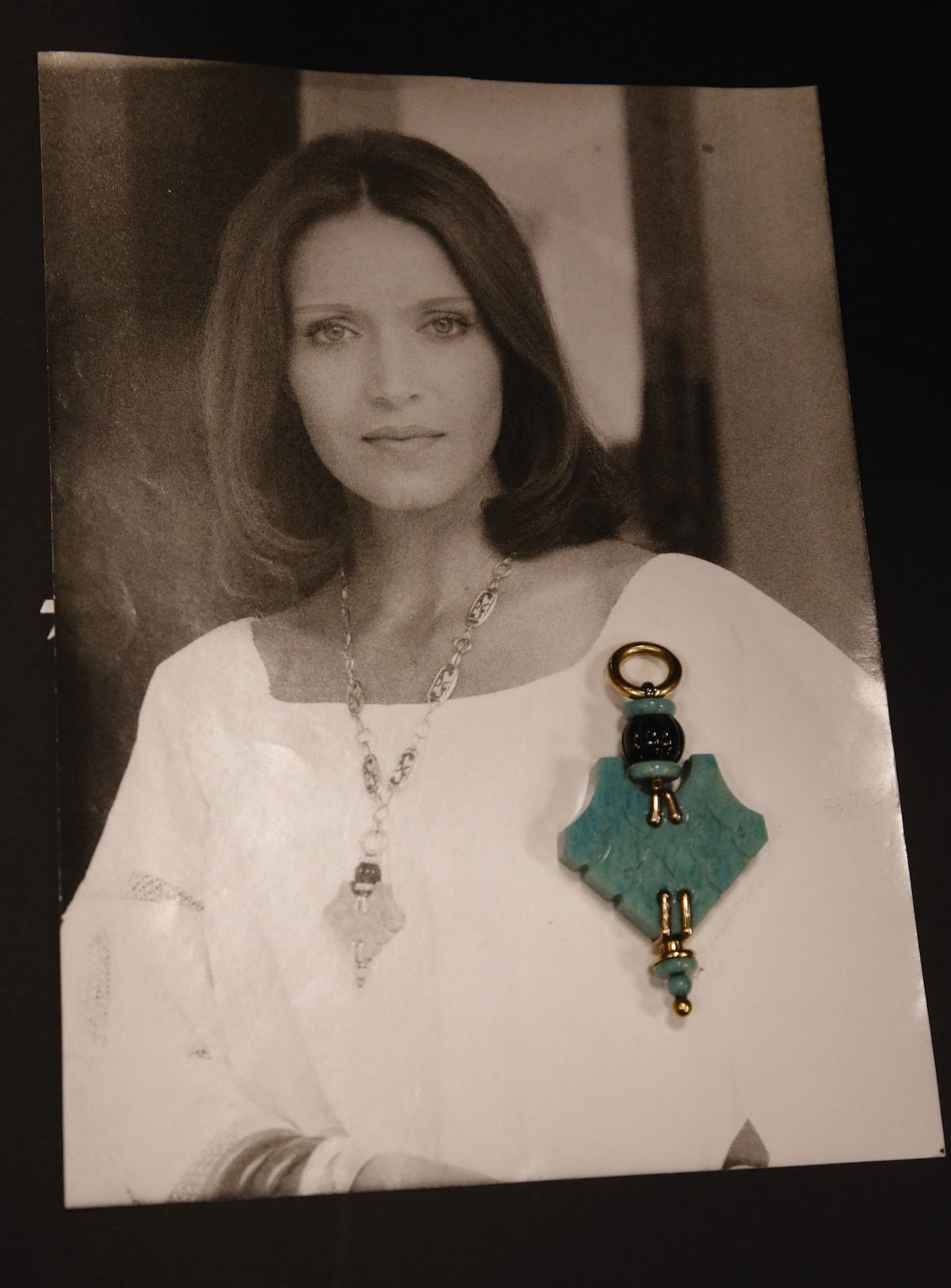
How do you recharge your batteries?
“To the extent that we live, we survive, we recharge our batteries every day. I want to be lucid in everyday life, I don’t need to recharge my batteries.”
Perhaps it is this joie de vivre that allows you to always be Françoise Fabian?
“Thank you, sir… Thank you.”
Who, what do you believe in?
“I believe in lucidity, in benevolence, above all. You have to come out of yourself to think about others. You have to have respect for yourself and for others. You have to want to save yourself, to save the world! you have to have a taste for beauty, a taste for the arts If they didn’t exist, life would be terribly sad. I also believe in goodness, generosity, selflessness. not a little utopian?”
Do you think about death sometimes?
“Always, since my childhood. I’ve seen so many people suffer. We have to think about it.”
What comes after death?
“Nothing. I don’t believe it. But we can continue in other people’s lives.”
What built you?
“Respect.”
Are you a happy woman?
“I don’t know. I’m a very happy woman. And I’m a very unhappy woman. You have to deal with that.”

